EcoTipping Points
- How do they work?
- Leveraging vicious
cycles to virtuous - Ingredients for success
- Create your own
EcoTipping Points!
Stories by Region
- USA-Canada
- Latin America
- Europe
- Middle East
- South Asia
- Southeast Asia
- East Asia
- Africa
- Oceania-Australia
Stories by Topic
- Agriculture
- Business
- Education
- Energy
- Fisheries
- Forests
- Public Health
- Urban Ecosystems
- Water and Watersheds
Short Videos
- Saving a Coral Reef and Fishery (Apo Island, Philippines)
- Community Gardens Reverse Urban Decay (NYC, USA)
- Community Forests Reverse Tropical Deforestation (Thailand)
- Escaping the Pesticide Trap (India)
- Rainwater Harvesting and Groundwater Replenishment (Rajasthan, India)
How Success Works:
- Saving a Coral Reef and Fishery (Apo Island, Philippines)
- Community Gardens Reverse Urban Decay (NYC, USA)
- Community Forests Reverse Tropical Deforestation (Thailand)
- Escaping the Pesticide Trap (India)
- Rainwater Harvesting and Groundwater Replenishment (Rajasthan, India)
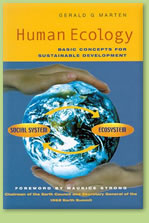
Human Ecology:
Principles underlying
EcoTipping Points
Contact The EcoTipping Points Project
Email us: ecotippingpoints@gmail.com - We'd love to hear from you!
- Do you have an EcoTipping Points story or educational materials to share?
- Interested in collaboration on a project?
- Need a speaker for your event or classroom?
- Want to work with us to adapt EcoTipping teaching materials to your classroom?
- Questions or comments about our project?
- Questions or comments about our website?
Who We Are
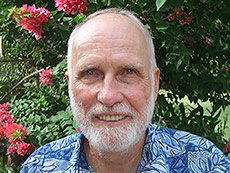
Gerry Marten (Ecotipping Points Project leader) is an ecologist with fifty years of research experience in a variety of ecosystems around the world. He has lived and worked in the United States and Canada, Mexico and Central America, East Africa, Southeast Asia, and Japan. His love of nature, while growing up in Southern California’s Santa Monica Mountains, kindled a scientific passion to explore how nature works, and a commitment to translating science so people and communities can make good use of it. Author of Human Ecology: Basic Concepts for Sustainable Development (Earthscan Publications, 2001) and Traditional Agriculture in Southeast Asia: A Human Ecology Perspective (Westview Press, 1986), he has published approximately one hundred scientific articles, many of them on practical concerns such as fisheries and forest management, tropical agriculture and land use, alternative energy, ecological mosquito control, and how people can live sustainably on this planet. His proudest accomplishment has been development of a biological control method that led to eradication of the dengue fever mosquito from extensive areas of Vietnam. Most recently a professor of human ecology in the School of Policy Studies at Japan’s Kwansei Gakuin University, he is now an adjunct senior fellow at the East-West Center in Honolulu. He began the EcoTipping Points project to discover how lessons from environmental success stories can point the way to making a better world for his five grandchildren and all the rest of us.
- Website: gerrymarten.com
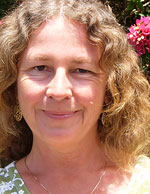
Regina Gregory has long studied and written about environmental economics and natural resources management. Publications include reports for the World Bank, UN ESCAP, and Environmental Defense, and articles for the Honolulu Weekly and Yes! Magazine.

Bill Morrison, the current designer and webmaster of the EcoTipping Points website, is also an digital media educator and community do-gooder whose current interests are in native plant propagation and land stewardship & restoration. He lives on Oahu, Hawaii with his two dogs.

Amanda Suutari is an artist and journalist who works mainly in media and sustainability. She has recently returned to Canada from nearly a decade in Asia, where she contributed to various publications, including the Southeast Asian Review, Harvard Asia Quarterly, the Japan Times, Kyoto Journal, and Kansai Time Out magazine. Her more recent interests include the emerging field of whole systems design, both in its ecological and organizational applications. Currently based in Vancouver, she is pursuing training in coaching to assist individuals and organizations to be more effective changemakers.
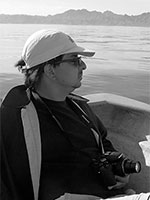
David Nuñez is a freelance translator and manages Mexiconservación, a non-profit environmental organization which he co-founded.
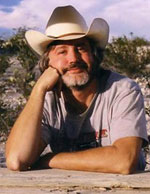
Steve Brooks is an award-winning business reporter whose work has appeared in newspapers like the Dallas Morning News and the New Orleans Times-Picayune, and magazines like Fortune and Business Week. His personal tipping point came in 1979, when his Pennsylvania home was almost wiped off the map by the nuclear accident at Three Mile Island. He now lives and writes in Austin, Texas.
Nathalie Fabri, the designer of the original EcoTipping Points website, is also a professional artist whose work has been shown across the United States. She now lives in California and teaches art to children.
Contact: Nathalie Fabri

